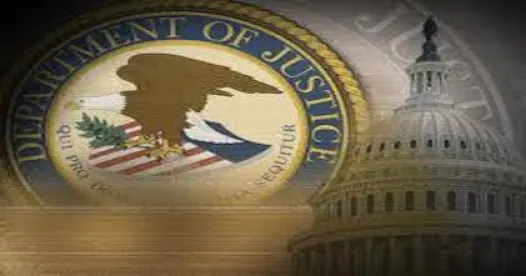On August 29, the Wall Street Journal reported (paywall) a story that other news outlets later have picked up: the Department of Justice (“DOJ”) is investigating whether Jho Low, a Malaysian businessman at the center of the alleged embezzlement of $4.5 billion from 1Malaysia Development Bhd (“1MDB”), is paying – via two intermediaries – his U.S.-based lawyers with allegedly tainted funds. The report states that there is no indication at this time that the U.S. attorneys were aware that the funds could have originated from money Mr. Low allegedly siphoned off from 1MDB. Rather, the investigation centers on Low’s potential use of intermediaries to facilitate the payments. The DOJ already has filed civil forfeiture complaints seeking to recover almost $1.7 billion in various high-end assets from Mr. Low and others allegedly bought with the embezzled funds, and it reportedly is investigating Mr. Low individually for potential criminal charges.
In light of this report, and the growing attention paid to the potential money laundering risks faced by third-party professionals and lawyers in particular (on which he have blogged: see here, here, here, here, here, here and here) now is a good time to consider how U.S. money laundering and forfeiture laws may apply to attorneys for their work when they receive potentially tainted fees from clients. As we discuss, the criminal and civil forfeiture laws have a potentially broad reach, even in regards to legal payments.
Attorney Fees and Tainted Funds: The Basics
At bottom, money laundering involves a financial transaction which uses proceeds of certain crimes. The popular understanding of such a transaction is one whereby “dirty” money is placed into a legitimate business or through a nominee account in an effort to “cleanse” the money of criminal taint. However, 18 U.S.C. § 1957 – one of two money laundering statues under the U.S. criminal code – contains no requirement that the government prove an intent to conceal the proceeds of a crime, or any other specific intent, such as an intent to promote the underlying crime. That is, one who simply “knowingly engages” in a monetary transaction involving over $10,000 of “criminally derived property” can be charged under § 1957. Knowledge is the only required mental state, so long as the transaction involves over $10,000.
Important for this discussion is that two years after passage of § 1957, Congress amended the reach of the statute so as to exclude bona fide payment for representation in a criminal matter. Codified at § 1957(1) (“Safe Harbor Provision”), the definition of “monetary transaction” in § 1957(f)(1) “does not include any transaction necessary to preserve a person’s right to representation as guaranteed by the Sixth Amendment of the Constitution.” Section 1956, the other criminal money laundering statute, contains no such exception. The exception under § 1957 seeks to prevent payments by clients to defense counsel, made for the purpose of compensating counsel for work performed in a criminal matter involving the payor, from being transformed into money laundering crimes. Because multiple payments relating to the same transaction can be aggregated to satisfy the $10,000 threshold, and given the lack of a specific intent requirement, § 1957 could constitute a constant threat of prosecution to defense attorneys without this exception.
The practical impact of the Safe Harbor Provision is more limited than some may have hoped, and its protections often depend on prosecutorial discretion and restraint. In one important aspect, the Sixth Amendment generally does not attach until indictment. As a corollary, the Safe Harbor Provision may not apply prior to (or in the absence of) an indictment. Particularly for attorneys who practice white-collar criminal defense, this is a meaningful limitation, because their clients often seek counsel after the commencement of an investigation but prior to any indictment — and an attorney undertaking such a representation will not be in a realistic position to wait until either indictment or the close of the government’s investigation to collect his or her fee. Moreover, the Fourth Circuit has held in a divided decision that the Safe Harbor Provision does not apply in instances whereupon an attorney “receives and deposits” tainted funds from a third-party payer. See United States v. Blair, 661 F.3d. 755 (4th Cir. 2011) (narrowly construing the provision in a drug case to only apply if the transaction was to secure the payer’s Sixth Amendment rights). This ruling, if taken to its apparent logical conclusion, also has potential implications for attorneys who are representing company employees and being indemnified by the company, if the company allegedly earned illegal profits from the underlying crime.
Finally, if an attorney goes beyond merely accepting fees for legal representation in a criminal case, he or she, like anyone else, is susceptible to prosecution for traditional money laundering offenses under Section 1956: courts have upheld convictions when the evidence indicated that counsel stepped over the line and participated directly in the underlying illegal activities or attempted to help to conceal their proceeds.
DOJ Policy on Legal Fees as Money Laundering Transactions
To be sure, the government limits its discretion to file criminal charges against an attorney who accepts illicit funds in the course of his or her representation. In particular, the U.S. Attorneys’ Manual (“USAM”) provides that attorneys should notbe prosecuted under § 1957 based on the receipt of bona fide legal fees for legitimate representation in a criminal matter, unless:
(1) [T]here is proof beyond a reasonable doubt that the attorney had actual knowledge of the illegal origin of the specific property received (prosecution is not permitted if the only proof of knowledge is evidence of willful blindness); and (2) such evidence does not consist of (a) confidential communications made by the client preliminary to and with regard to undertaking representation in the criminal matter; or (b) confidential communications made during the course of representation in the criminal matter; or (c) other information obtained by the attorney during the course of the representation and in furtherance of the obligation to effectively represent the client.
This policy appears to acknowledge that literal application of § 1957 might create long-term institutional problems for the DOJ in the form of a sustained backlash by courts and the legal profession. Indeed, the government has encountered significant opposition and legal setbacks in at least one high-profile prosecution of an attorney under § 1957, in which the Eleventh Circuit found that, regardless of the attorney’s actual knowledge, “the plain language of § 1957(f)(1) clearly exempts criminally derived proceeds used to secure legal representation to which an accused is entitled under the Sixth Amendment.” However, the DOJ policy appears to ignore the fact that the § 1957(f) exemption for attorney fees applies even if the attorney actually knows that the funds are illegal proceeds, regardless of how or when such knowledge was acquired. Further, although the DOJ takes the position that prosecution under § 1957 will not be authorized solely on the basis of evidence of willful blindness, DOJ also states that once a case is authorized, it may rely upon a willful blindness theory at trial. USAM, Criminal Resource Manual, at § 2103.
Forfeiture
Federal forfeiture laws, on the other hand, pose a different kind of risk for lawyers — one that the Safe Harbor Provision does not protect against. Forfeiture laws are premised, in part, on the notion that tainted assets belong to the government as of the date the underlying offense was committed. Although criminal forfeiture judgments are in personam and can be entered only against criminal defendants, civil forfeiture is in rem and applies to assets — and assets subject to civil forfeiture include not only those which belong to an alleged wrongdoer, but also those which have been transferred to third-parties. With respect to legal representation in a criminal case, there is no Sixth Amendment right to use criminally-derived assets to retain counsel. See Caplin & Drysdale v. United States, 109 S. Ct. 2646 (1989).
Nonetheless, the DOJ – recognizing that a rigid application of forfeiture laws to attorney fees “may prevent the free and open exchange of information between an attorney and a client” – advances a heighted requirement in such instances. USAM 9-120.100. That is, tainted assets paid as legal fees (in the course of either civil or criminal representation) may only be subject to forfeiture when, at the time of the transfer, there are reasonable grounds to believe that the attorney had actualknowledge (as opposed to mere reasonable cause to believe) that the asset was subject to forfeiture. Id. at 9-120.103, 104.



 />i
/>i
